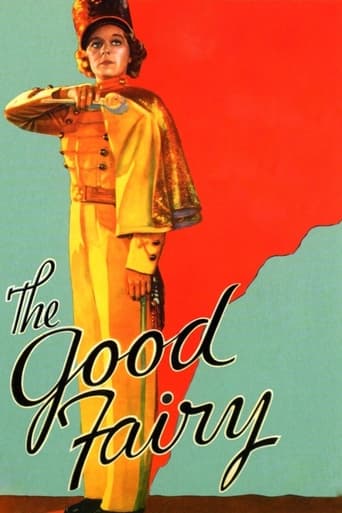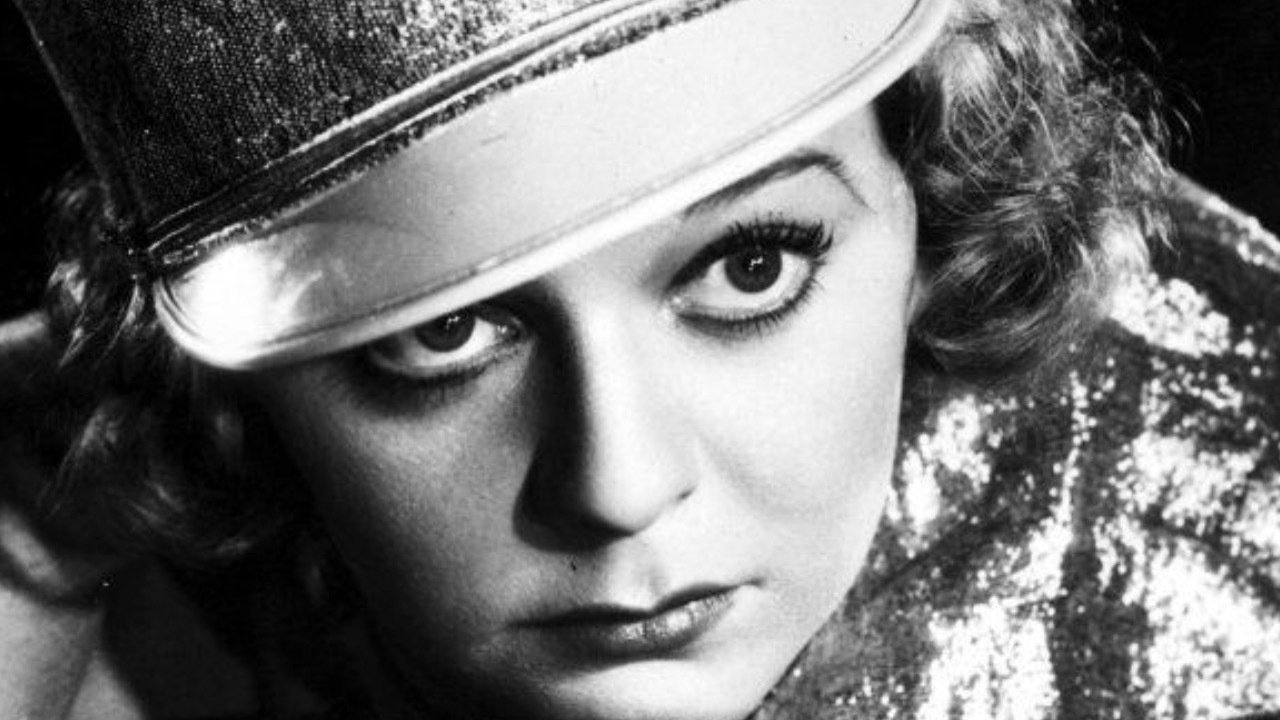utgard14
Pleasant, if somewhat disappointing, romantic comedy written by Preston Sturges and directed by William Wyler. Both men did much better work than this. That isn't to say this is bad, because no movie with this level of talent involved could ever be bad. It's just not as good as one would hope. For starters, it's not very funny. I watched it with a friend and fellow classic film fan and she called it "screwball comedy, light on the comedy." That seems about right. It's certainly a wacky enough movie with a plot you would expect from Sturges -- naive young woman fresh out of an orphanage tries to help a struggling lawyer and winds up falling for him while another old guy tries to get in her pants.Margaret Sullavan stars as the young woman and she's easy to like and root for, although her character's childlike naiveté begins to oog you out near the end when you see her break down in tears over the whole mess she started, and you suddenly realize this movie's plot is basically a love story between a minor and a guy in his 40s. But it's best not to look at these things through a modern lens if one can help it. Anyway, Sullavan does fine, as does Herbert Marshall as the lawyer. The two scene stealers, though, are Frank Morgan and Reginald Denny. Morgan has a funny line about a wizard that might give you a chuckle, foreshadowing his most famous role four years later. The best part of the film to me, and the part that most directly screams Sturges, is the movie-within-a-movie that stars Gavin Gordon ("Go."). You have to see it to get why it's so funny but it's really more in line with what I hoped the rest of the movie would be. Instead the movie is a decent romcom with a great cast and a so-so script. It starts out strong but bogs down in the middle and seems to take forever to finish, despite not being particularly long. Worth a look for fans of any of the names involved but keep expectations reasonable.
nomoons11
There's a time in film when Margaret Sullavan was on top of her game. She was no beauty queen but what she had was...charm. She had lots of charm.This film has good performances all around. From Margaret Sullavan to Herbert Marshall to the side performances. Look for Reginald Owen as the waiter. He steals a lot the scenes.Margaret Sullavan plays Luisa Ginglebuscher, a girl raised in an orphanage, who gets an opportunity to work at a movie theater as an usher. Problem is, she's never been outside the confines of her orphanage so she sees life through rose color glasses. Every day there she had to do 1 thing to make someone's life better. She had to be a good fairy...every day. She's very innocent to say the least. From this she remembers that she has to do the same for her new surroundings. So she picks out someone from a phone book to do her good deed. After this, the fun starts.This is another one of those 30's gems with a solid cast and an even better story. The 30's was a time when innocence in film still existed. Stories about people being good and doing good things for others. This one is one em with a loads of heart and charm. A real feel good film for its time.
tedg
There is much of Jane Eyre in this. A minor version had been made the previous year and flopped. What if you pulled out all the social commentary that Bronte used to shape her story and just built something on the ability of an innocent to make a good story? Then you can spindle the social observations afterward. I suspect that is something like what happened here.The setup is simple. Orphan girl, newly a woman. Famed for storytelling in the orphanage. Selected to be an usher at a movie theater, she enters both the world of sexual advances and movies (analogously). Her strength and endearing manner give her the power to create a good story, which happens to be the one we see.Yet another rather profound narrative experiment from the period when films were trying to discover what they were.The girl is a brilliant redhead, though a viewer would not know except through fan magazines.Ted's Evaluation -- 2 of 3: Has some interesting elements.
theowinthrop
Before "Christmas In July" and "The Great McGinty" Preston Sturgis was a screenplay writer - one of the two great screenplay writers of the 1930s who graduated into very respectable directorial careers (the other being Billy Wilder, of course). Oddly both men cut their abilities at Paramount, not MGM. And both claimed that they were dissatisfied with the ways two of their best scripts were shot ("Easy Living" and "Remember The Night"), butchered (in their opinion) by the same director: Mitchell Leisin.Actually this was hardly fair to Leisin. If he did not have quite the cynical bite of either Sturgis or Wilder, he did not ruin their screenplays. He tended to make characters more human. Moreover, it is hard to support the comment about "Easy Living", when Leisin is credited (not Wilder and Charles Brackett his partner) with the most famous scene in that film: Leisin created the Automat scene where all the doors of the Automat food compartment fly open and all the bums in New York City run amok getting free food! This was not ruining a film, but improving it.Sturgis' screenplays were an interesting group. He wrote the screenplay for the Edward Arnold biography "Diamond Jim". He also did the Ronald Colman - Basil Rathbone film "If I Were King". He also did the Bob Hope - Martha Raye - Andy Devine comedy "Never Say Die". His screenplay work was generally quite sharp, and never sharper (prior to his own directing) than in "The Good Fairy".Margaret Sullavan plays Luisa Ginglebusher, who has just come of age, and has to leave the convent school presided over by Beulah Bondi. Luisa has been well brought up, and she is determined to live up to the best traditions. One thing is her determination to do good. Naturally, she is like a wide eyed lamb in a world of wolves. Sure enough she soon is taken (briefly) under the wing of an arch-wolf, Cesar Romero. But she finds she has attracted a good fairy of her own, Detlaff the waiter (Reginald Owen). If one thinks of Owen solely from his nice performance as Ebenezer Scrooge, it is wonderful to see him kick off his comic shoes and timing in a film like this. He sees Luisa as a decent girl, and she is making sure she remains that way in the wilds of the wicked city of Budapesth. But Luisa sees herself as a good fairy, and she picks, out of a telephone book, a name of a person to help. It is a lawyer, Dr. Max Sporum (Herbert Marshall - complete with chin whiskers). Sporum is a fiercely honest attorney (which explains the lack of clients). Luisa, when she discovers this, decides to encourage customers. She has attracted one old goat: Konrad a rich meat factory owner (Frank Morgan). She manages to convince him that she is married to the struggling Sporum, and that she would do anything to help her "husband" make a success. Konrad takes the hint, and goes to Sporum to make him his lawyer. Sporum is amazed but thinks Konrad was told about him by an old law professor, Dr. Stanislav Metz (Eric Blore). When Luisa talks to him about his success afterward Sporum is still in a state of euphoria (he took some of the first retainer money to buy a pencil sharpener). Luisa does suggest some new clothing and he shave off his whiskers.Eventually Luisa is in over her head, as she tries to balance Sporum (who she is falling for), Konrad, and the guardian angel Detlaff. And it's done quite well. Look at the scene where Detlaff is serving Konrad and Luisa in the restaurant and keeps knocking every possible dish Konrad suggests they order ("What kind of restaurant is this?", a perplexed Konrad/Morgan asks). The scene where Marshall has to shave his beard (Luis Alberni is the barber - also with a beard) is brief but funny, as Alberni tries to talk Marshall out of the sacrifice. He just barely loses.It was a wonderful comedy, hinting at what the writer was capable of. And with names like Sporum and Ginglebusher future Sturgis names like Kockenlocker and Hackensacker were just around the corner. One only regrets that none of the leads, except Cesar Romero, ever appeared in a Sturgis film when he was directing them.


 AD
AD


